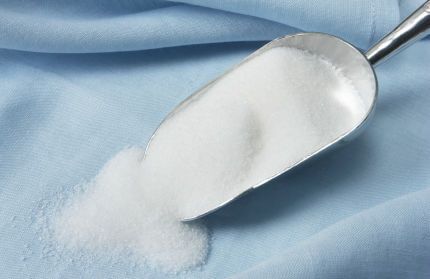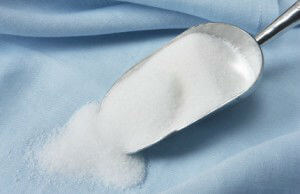
While our cells need glucose to survive, we should all assume that nobody has the problem of not getting enough sugar in their diet. In contrast, most people consume far too much sugar – which can result in a host of health problems.
An abundance of sugar significantly increases the risk of many diseases and conditions including type 2 diabetes, obesity and bad teeth (to name just a few).
You’ve probably already heard about the dangers of high sugar consumption, but are you really aware of how much you’re eating?
The American Heart Association and most health experts recommend no more than 6 teaspoons per day for women and a maximum of 9 teaspoons for men. This may sound like a lot, until you consider how much everyday foods and drinks contain.
Most likely, you’re ingesting far more than that amount– the average American adult consumes 22 teaspoons per day while teenagers consume an astounding 34 teaspoons daily. The U.S. Department of Agriculture reports that Americans consume about 156 pounds of added sugar annually, or over 31 five-pound bags per person.
Where does all of that sugar come from?
Of course, most of that sugar doesn’t come directly from a sugar bowl. Just 29 pounds of it is said to be derived from traditional sugar with the rest coming from foods and beverages. Many of the sources are obvious, like soda, candy and junk food, but other sources aren’t so obvious.
Sugar lurks in many places where you might not expect it. Most processed foods are loaded with sugar, frequently in the form of high-fructose corn syrup. What’s also frightening is that scientists say this ingredient can cause reactions that are similar to cocaine. Research has found that there is an addictive quality to foods that contain high levels of high-fructose corn syrup which could partially explain the current global obesity epidemic.
Research out of Princeton University revealed that rats fed on a sugar diet became nervous and anxious when the sugar was removed. The animals were thrown into a state of anxiety similar to the type of stress people experience when going through withdrawals from drugs like nicotine and morphine.
Because high fructose corn syrup is a cheap ingredient, you’ll find it in nearly every section of your grocery store as well as every item in a fast food meal. It’s in the soda, the hamburger patty, the bun, dressings and sauces, salads and desserts.
The major source of added sugar, not including naturally occurring sugars like what you’ll find in fruit, is soft drinks. These account for one-third of all added sugars consumed. Sweetened fruit drinks make up about 10 percent, while ready-to-eat cereals comprise 4 percent of the total.
A little over one-quarter of added sugars come from processed or prepared foods like ketchup, peanut butter and canned vegetables or fruits.
The surprising amount of sugar in common foods
A can of Coca Cola contains the equivalent of 10 teaspoons of sugar and a Snickers candy bar over 4 teaspoons of sugar. It’s easy to see that by consuming one or the other, or both, you can quickly exceed the daily recommended amount of sugar. Many people consume several sodas and a candy bar or more each day.
 What is more surprising is all of the sugar you’re probably getting in foods that don’t seem sweet.
What is more surprising is all of the sugar you’re probably getting in foods that don’t seem sweet.
A tablespoon of ketchup contains nearly one teaspoon of sugar, usually in the form of high fructose corn syrup. Depending on the brand and flavor, one serving of yogurt contains anywhere from 6 grams, or 1.5 teaspoons of sugar, to 36 grams, or 9 teaspoons of sugar. One can of fruit cocktail includes about 4 teaspoons of sugar while regular wheat crackers contain about 3 teaspoons per serving.
Even if you avoid soda and candy, you’re probably consuming far more sugar than what you should be if you hope to achieve or maintain optimal health.
The next time you head to the grocery store, read those labels and be aware of how much sugar you’re consuming so that you can take action to limit it in your diet – your good health and well-being is at stake!
-The Alternative Daily
Sources:
http://www.medicalnewstoday.com/articles/262978.php
http://www.nbcnews.com/id/32543288/ns/health-diet_and_nutrition/t/cut-back-way-back-sugar-says-heart-group/
http://www.dailymail.co.uk/news/article-2337798/Are-sugar-addict-Scientists-say-high-fructose-corn-syrup-addictive-cocaine.html

